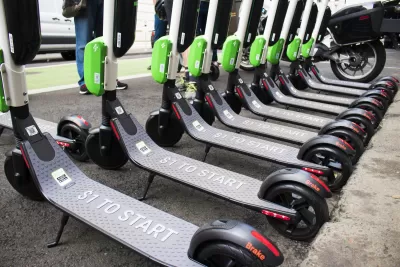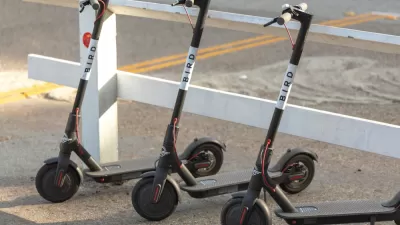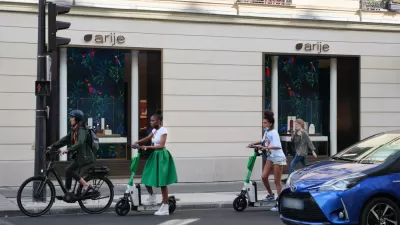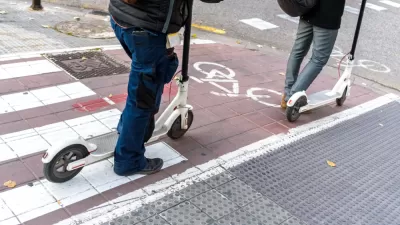Major micromobility comapnies and lesser known competitors are stating their interest to take part in a New York City e-scooter pilot program slated for Spring 2021.

New York City Department of Transportation (NYCDOT) recently released a Request for Expressions of Interest (RFEI) for the city's eagerly awaited e-scooter pilot program. "The RFEI announcement has now set off a frenzy among dockless vehicle operators, who all see an opportunity to serve what has, until now, been the largest untapped market in the United States," reports Chris Teale.
U.S.-based companies like Bird, Lime, and Spin are preparing applications to participate in the pilot program which will begin on the first of March next year.
Once initiated, the pilot program will be rolled out the vehicles in small groups to ensure safe service sin all every borough except Manhattan, where e-scooters will not be permitted. "NYCDOT said that preference will be given to serving areas outside of its existing or planned bike-share zones," says Teale.
All of the microbility corporations who commented for Teale's piece said that safety and equity would be among their top priorities in planning for the pilot and completing the application process. Elected officials cited safety and charging infrastructure as their main concerns in provisioning the e-scooters. The RFEI specifies that operators will be responsible for making sure scooters are properly parked. Additionally, operators will not be allowed to hire private contractors to charge vehicles in private residences.
Competing with the major micromobility companies are Stockholm-based Voi and the robotics company Superpedestrian. All companies have been asked to complete their applications by a December 16th deadline.
FULL STORY: NYC releases terms of e-scooter pilot

Alabama: Trump Terminates Settlements for Black Communities Harmed By Raw Sewage
Trump deemed the landmark civil rights agreement “illegal DEI and environmental justice policy.”

Study: Maui’s Plan to Convert Vacation Rentals to Long-Term Housing Could Cause Nearly $1 Billion Economic Loss
The plan would reduce visitor accommodation by 25% resulting in 1,900 jobs lost.

Planetizen Federal Action Tracker
A weekly monitor of how Trump’s orders and actions are impacting planners and planning in America.

Grand Rapids Mayor Proposes Garage Conversion Plan
The mayor says allowing homeowners to convert garages to dwelling units could alleviate the city’s housing shortage.

Baltimore Ordered to Improve Sidewalk Accessibility
The city is one of many to face lawsuits for failing to comply with the Americans with Disabilities Act.

This Toronto Suburb Has More Bus Riders Than Columbus, Ohio
Brampton, Ontario used gradual improvements in service to prove that if you build it, they will ride.
Urban Design for Planners 1: Software Tools
This six-course series explores essential urban design concepts using open source software and equips planners with the tools they need to participate fully in the urban design process.
Planning for Universal Design
Learn the tools for implementing Universal Design in planning regulations.
Smith Gee Studio
Alamo Area Metropolitan Planning Organization
City of Santa Clarita
Institute for Housing and Urban Development Studies (IHS)
City of Grandview
Harvard GSD Executive Education
Toledo-Lucas County Plan Commissions
Salt Lake City
NYU Wagner Graduate School of Public Service





























